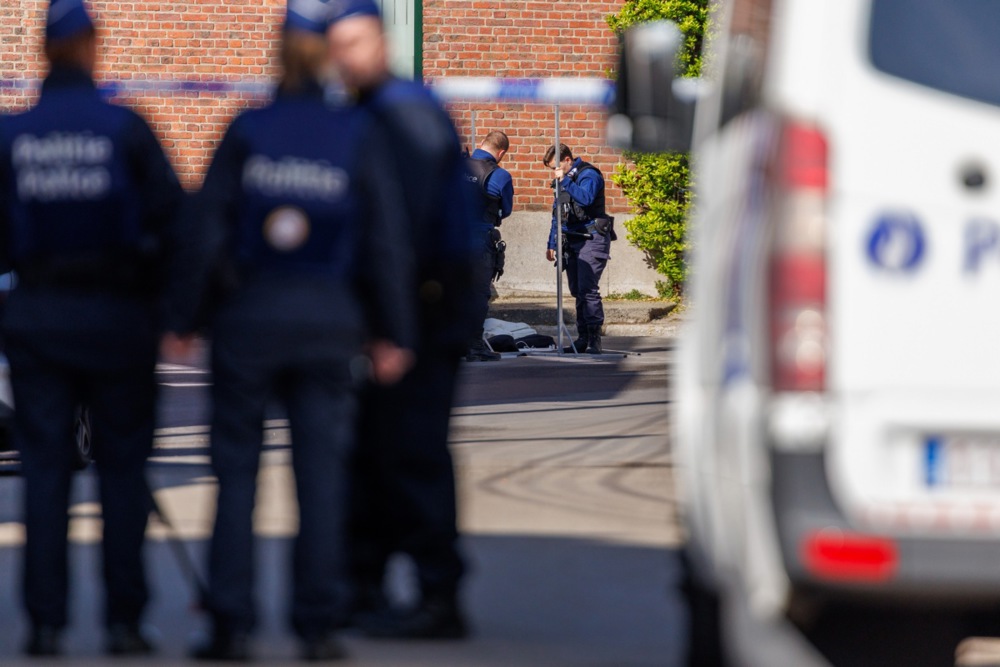Criminals have the upper hand in Belgium, according to an Antwerp-based judge.
The investigating judge, a woman, has written a damning letter to the Justice Committee about the emergence of a ‘narco state’ in Belgium, a country that is becoming synonymous with “dark money, corruption and violence”.
The judge, whose name was withheld, has herself had to hide in a safe house for four months after receiving threats from drugs criminals. Other judges face serious danger, she claimed in the letter to Antwerp Court of Appeal, published today.
“We are facing an organised threat that undermines our institutions,” she warned.
“Extensive mafia-like structures have become entrenched, forming a parallel power that challenges not only the police but also the judiciary. The consequences are serious.”
She pointed to the Operation SKY ECC, dedicated to tackling Sky ECC encrypted communications by large-scale organised crime groups. The investigation brought to light an illicit “parallel economy” at Antwerp harbour worth billions of euros. The justice system barely makes a dent in this problem, she added.
Criminal organisations bribe employees with mountains of cash, or just threaten them. This has permeated into Belgian institutions, the judge said.
Investigations “have led to arrests of key port staff, customs officers, police, city and municipal clerks, and sadly even justice officials in prisons and in this very [justice palace] building”.
“Our IT systems are poorly secured.”
An investigative judge from Antwerp has been living in a safe house for several weeks after receiving threats from drugs mafia members. https://t.co/kieGKfbtAD
— Brussels Signal (@brusselssignal) November 29, 2024
She describes how “criminal organisations use violence on demand, ranging from murder, torture and kidnapping to threats and attacks, sometimes targeting innocent civilians, in order to maintain their power and eliminate rivals”.
One victim of this violence was an 11-year-old.
“An attack on a home with a bomb or military weapons, a home invasion or kidnapping are very easy to order online,” the judge said.
“You don’t even have to go on the dark web; a Snapchat account is enough. What’s more, it’s not even expensive; often a few hundred euros is enough.”
This has led to a situation where judges have to live under police protection or in safe houses but without much further help from the government, she argued.
“There is no compensation, no support for family and colleagues, no insurance for all damages.”
The judge warned: “When the judiciary starts to falter, it poses a serious threat to our democracy.
“It’s becoming harder to find judges willing to handle such cases — attacks often target the person instead of the issue, for instance through recusal requests.
“Colleagues step aside when threats are clear. How long before one feels forced to invent a procedural error just to avoid signing a conviction for their own safety?” she asked.
She called for urgent action from the government, including the opportunity for judges to work anonymously, a fixed contact point within the interior and justice ministries for threatened magistrates, with a clear protocol.
The judge also demanded insurance covering all physical and material damage magistrates and their families suffered in case of attacks and the protection of magistrates’ addresses in databases such as the National Register.
In prisons, she suggested prohibiting communications by detainees because they often continue their criminal activities from jail.
“In almost all devices that are seized and examined, we encounter new or ongoing crimes. We cannot neutralise threats, we cannot prevent attacks, our investigations are undermined because copies of our files are sent to Dubai and Turkey, and large-scale cocaine imports continue to be controlled from prison,” the judge said.
“On a smaller scale, prisoners continue to engage in phishing, stalking and dealing on a local level. You read in the newspapers about the attacks in Antwerp. It appears that a large proportion of these were ordered from prison.”
In conclusion, the judge said: “This is not a lamination, nor are we asking for applause or praise. We are asking for a government that takes responsibility for protecting its own foundations.
“We call on you to make this fight a structural priority. Not temporary, not project-based, but sustainable and systemic. Because the question is not whether the rule of law is under threat — it already is. The question is: How will our State defend itself?”
In reply to the letter, Justice Minister Annelies Verlinden said she understands the worries of the investigative judge and added that she had already taken action and plans to do more to improve the security of those working in the justice system.
“The administration of justice in our country is public, but we are working on eliminating the national register, signatures and names. An adjustment to the digitisation of the justice system is being developed. This also applies to prison staff,” Verlinden told public radio.
She called threats against magistrates “unacceptable”.
“People must be able to continue doing their work but only in safe conditions. We need to step up our efforts in this area.”
Julien Moinil, Brussels’ Chief Prosecutor, was put under police protection following threats from the city’s criminal drug underworld. https://t.co/Bw177Y80AE
— Brussels Signal (@brusselssignal) July 8, 2025





